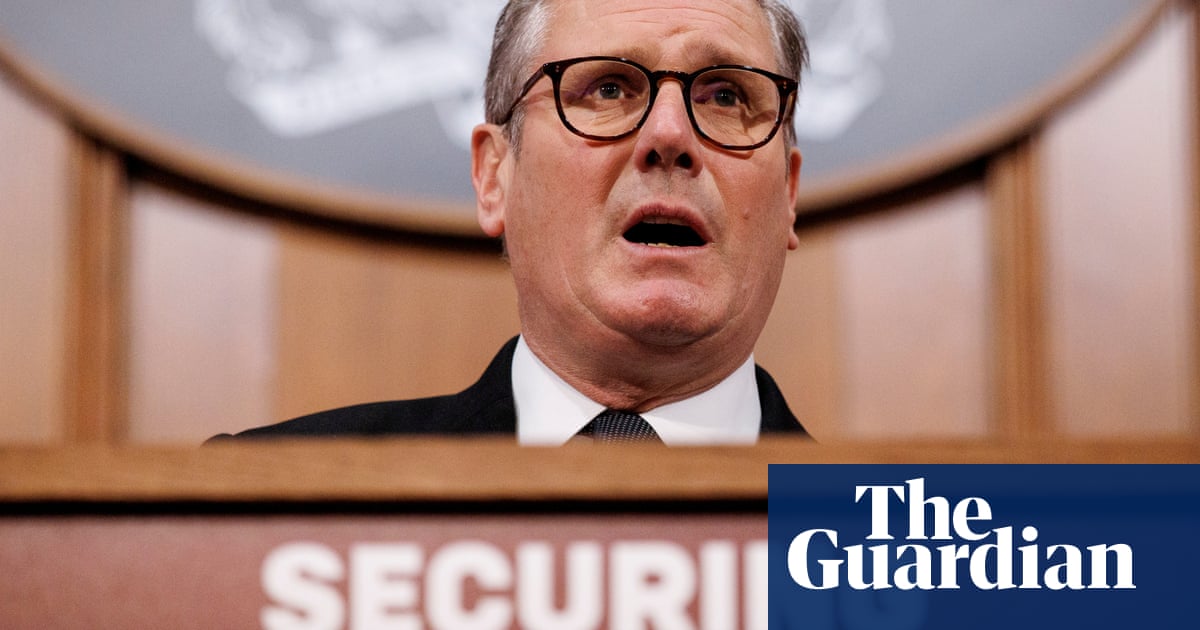Keir Starmer has told his MPs he will fightNigel Farage“as Labour” at an anxious private meeting where the prime minister faced criticism from his party on migration, welfare and the government’s strategy.
One MP called for Starmer to sack the speechwriter whoused the phrase “island of strangers”in last week’s migration speech. Two others said they felt the speech had departed from Labour values.
Starmer said thatLabourhad a “moral responsibility to make sure Farage never wins” and the party would be bolder about its achievements, especially on jobs and the cost of living.
“The Conservatives are not our principal opponent. Reform are our main rivals for power,” he told MPs. “We have to be clear that every opportunity [Farage] has had in this parliament to back working people, he’s voted against. Telling the workers at Jaguar Land Rover they deserve to go bust.
“A state-slashing, NHS-privatising Putin apologist. Without a single patriotic bone in his body. We will take the fight to him. We will fight as Labour.”
The remarks were seen by some MPs as tacit acknowledgment of the criticism that Starmer’s language last week came too close to the rhetoric employed by Farage andReform UK.
Several Labour MPs had openly criticised the prime minister for suggesting the UK risked becoming an “island of strangers” and that migration had done “incalculable damage”.
The prime minister said that Labour could fight Reform UK over its record on the economy, citing the saving of British steel and jobs at Jaguar Land Rover, rising wages and falling mortgage rates. He also cited as key achievements the creation of GB Energy and breakfast clubs, as well as nationalised railways and improved workers’ rights.
“Nigel Farage stands for absolutely none of this. But that is what working people want. A Labour government on their side,” Starmer said. “We must repair the social contract. We must unite the country against Reform. We must tackle the cost-of-living crisis. And we must show that we are the party – the only party – that can deliver change for working people.”
MPs leaving the PLP meeting said Starmer was peppered with hostile questions from those present.
One said of the 26 questions “none were positive” and criticism came on a range of different issues where MPs were angry – including cuts todisability benefitsand Starmer’s migration speech, as well inaction on Gaza, the anger of the LGBT community and general concerns about the party’s electoral strategy, particularly for elections next year.
A new MP in a northern English seat said she feared from her experience knocking on doors in the local elections that the party was losing more voters to the Greens and Lib Dems than to Reform.
